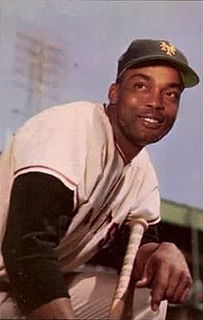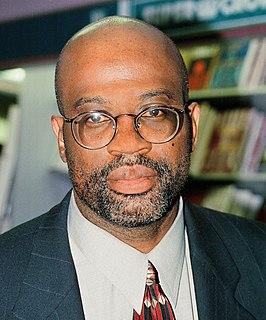A Quote by Jeffrey Rosen
Unlike [Woodrow] Wilson, Louis Brandeis did not support the segregation of the federal government. He was personally courteous to African Americans. He advised them and advised the head of Howard University to create a good law school. And that inspired Charles Hamilton Houston and Thurgood Marshall in their path-breaking work on behalf of desegregation.
Quote Topics
Related Quotes
Amiri Baraka went to Howard. Lucille Clifton went to Howard. Ossie Davis went to Howard. And I was aware of that when I was there. Charles Drew went to Howard. Thurgood Marshall went to the law school. Being aware of that and having all of that brought to bear, again, it's one of those things that I can't really separate from my career as a writer.
Most Americans who made it past the fourth grade have a pretty good idea who Thurgood Marshall, Rosa Parks, and Martin Luther King, Jr., were. Not many Americans have even heard of Alice Paul, Howard W. Smith, and Martha Griffiths. But they played almost as big a role in the history of women’s rights as Marshall and King played in the history of civil rights for African-Americans. They gave women the handle to the door to economic opportunity, and nearly all the gains women have made in that sphere since the nineteen-sixties were made because of what they did.
Louis Brandeis really inspired me to write this book [Louis D. Brandeis: American Prophet]. It was a crazy deadline. The editor said I'd miss the hundredth anniversary unless I pumped the thing out in six months, because I'd been delaying and dilly dallying for so long. So he both inspired me to get up early and write.
When Arthur Schlesinger Sr. pioneered the 'presidential greatness poll' in 1948, the top five were Lincoln, Washington, Franklin D. Roosevelt, Woodrow Wilson, and Jefferson. Only Wilson appears to be seriously fading, probably because his support for the World War I-era Sedition Act now seems outrageous; in this analogy, Woodrow is like the Doors and the Sedition Act is Oliver Stone.
That strain of anti-monopoly crusading egalitarianism really runs throughout American history from [Tomas] Jefferson to Woodrow Wilson, that finds its apotheosis in [Louis] Brandeis, continues through the New Deal, but then it sort of peters out in the '60s because progressives in particular become more interested in extending equality to minorities, and women, and other excluded groups, and little more suspicious of these old white guys, often from the south, who were crusaders against monopolies.





























